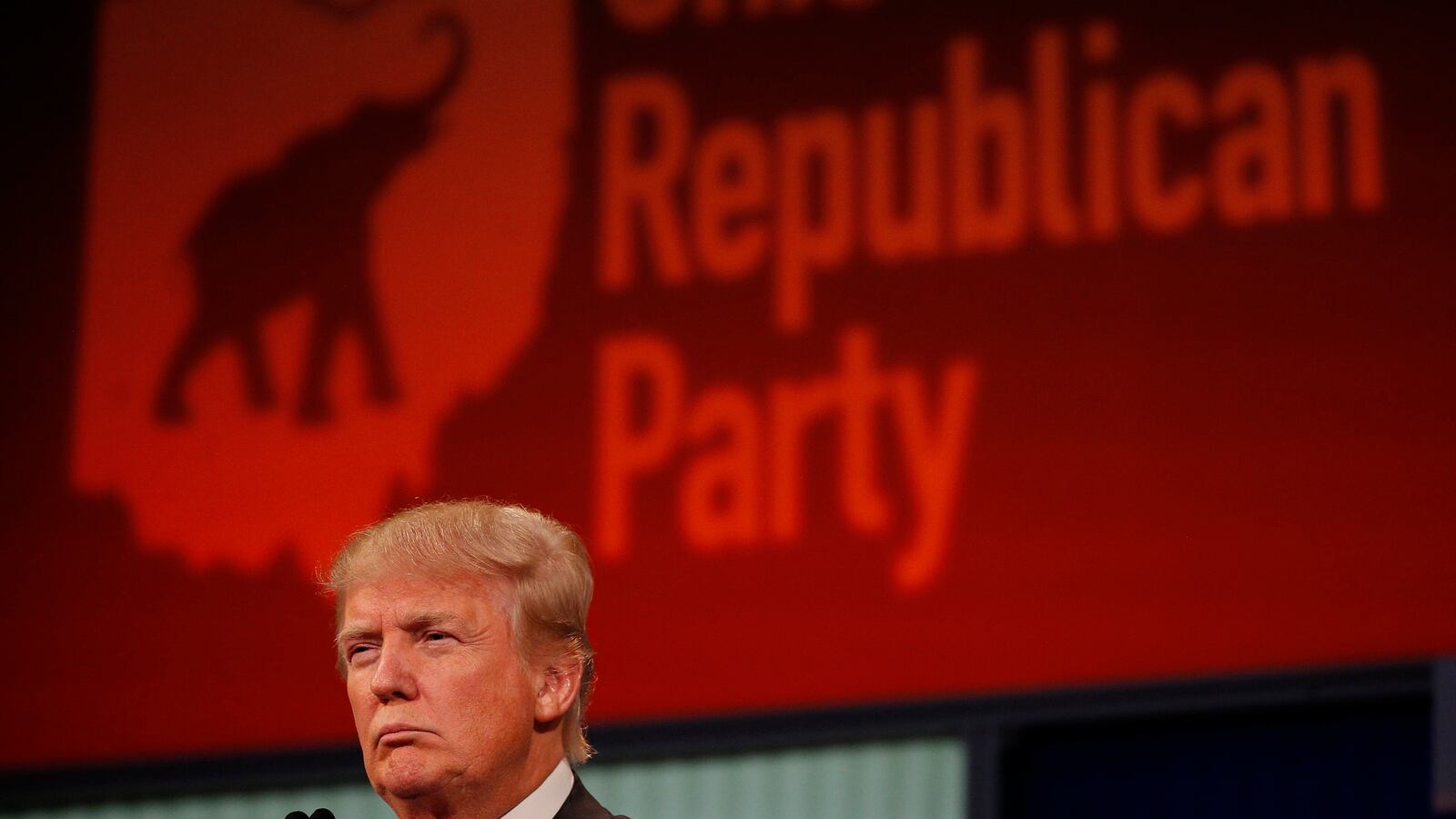CLEVELAND — Donald Trump won the Republican debate, according to Donald Trump.
“It’s the story of my life, I guess,” Trump told reporters after his performance. By that he meant: People are needlessly hard on him, but he is so great and so fabulous that he always prevails in the end.
Those debate moderators from Fox News—especially that Megyn Kelly, with her questions about women—were just plain unfair, Trump said.
“The questions to me were not nice,” he complained. “I didn’t think they were appropriate and I think Megyn behaved very poorly, personally.”
What Kelly had asked Trump was whether or not his statements about the fairer sex might prevent him from being perceived as the sort of person who could lead an entire nation, partially made up of women.
“You call women you don’t like ‘fat pigs,’ ‘dogs,’ ‘slobs,’ and ‘disgusting animals,’” Kelly told Trump.
“Only Rosie O’Donnell,” he interjected, which prompted laughs and guffaws from the audience.
Kelly didn’t let him get away with laughing the topic off.
“No, it wasn’t,” she said. “It was well beyond Rosie O’Donnell. You once told a contestant on The Celebrity Apprentice that it ‘would be a pretty picture to see her on her knees.’ Does that sound to you like the temperament of someone we should elect as president?”
Trump brushed Kelly off, saying he wouldn’t apologize for making politically incorrect jokes. Trump knows that this is what life is like as king. All the criticism, to him, is just a sign that he’s succeeding beyond anyone’s wildest dreams—except his own.
“The questions to me, I think, were much tougher than to anybody else,” he reiterated to the cameras as reporters enclosed him—elbowing one another, stepping on toes and, each time he moved an inch, threatening to crush one another alive. When it comes to candidates making a quick ascent, you hear the trope “sucking up all the oxygen in the room” a lot—with Trump, assume it’s meant literally.
“I, supposedly—according to what everybody’s telling me—I won the debate,” Trump said, matter-of-factly. “According to, you know, the call-ins and everything.”
I got so close to Trump, as he said this, that I could see every golden strand of his world-famous mane. It’s a brilliant shade of gold in real life—not the washed-out orange color it sometimes appears in photos. The way it shimmers with product, it looks like tinsel you could use to decorate a Christmas tree, or the thin chains of a classy necklace you might gift your third wife.
“Everybody came up to me and said I had the toughest—they weren’t even questions. They were statements. But, you know, it doesn’t matter,” Trump shrugged. “I answered them well and I’m very happy and I really had a good time. I thought it was an amazing debate and I got to know some of the folks that I really didn’t know and they really are good people.”
Before Trump even made it out to the “spin room,” (so titled because its purpose, established in 1984 by the Reagan campaign, is to give candidates and their operatives a chance to lie to reporters, or “spin” them, in political jargon, moments after the debate ends) he had declared victory in a press release that read, “Donald J. Trump Excels at First Republican Primary Debate.”
This was a vastly different tactic from what was employed by the rest of the nine candidates who shared Trump’s stage. (Trump was, by virtue of being the front-runner, granted the center spot onstage which is, objectively, the best and classiest position one could have.)
Jeb Bush, Ted Cruz, Rand Paul, Marco Rubio, Chris Christie, and Scott Walker could not be found in the windowless spin room, which was actually less of a room and more of a large corner, a few feet away from the press area, complete with RNC, Facebook, and Ohio GOP-branded backdrop.
In those candidates’ places were aides and advisers and advocates and spokespeople, each standing beneath a large, upward-arrow shaped sign, emblazoned with the candidate’s name and held in the air by a masochistic RNC volunteer. They did great, each campaign said of its candidate. Everybody won! It’s like Little League.
The candidates who did show up—Ben Carson, Mike Huckabee, John Kasich—stood for a few minutes encircled by modest scrums of reporters and then quickly exited.
It was only Trump who caused mayhem and probably an existential crisis or two in the spin room. The same, it seems, can be said for the Republican primary as a whole.






